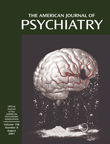Some time during the late 1980s, the evening research seminar held by Henry and Lila Gleitman at the University of Pennsylvania became “The Cheese Seminar,” since gourmet cheese was the steadfast accompaniment to the discussions of research in experimental psychology and psycholinguistics. By the acronymic 1990s, the seminar was simply called “Cheese.” During these evening discussions, many of the contributors to the book Perception, Cognition, and Language learned how to do psychological research in memory, learning, and language and, perhaps no less importantly, learned how to love triple crèmes. As the editors note in their introduction, “they did not need to learn to love Henry and Lila, since that is innate” (p. 8).
This book is, most clearly, a labor of that love—love for the subject matter and love for the mentors, Henry and Lila Gleitman. Henry Gleitman has been called the best teacher of the best undergraduate introductory psychology course in the country. Lila Gleitman is an internationally recognized psycholinguist. As a husband-and-wife academic team, the Gleitmans are perhaps most well-known by nonspecialists for their pioneering research on Motherese, the way that mothers all over the world speak to their babies—high-pitched, sing-song, repetitive—and the way this helps the infant brain learn a language. Nineteen contributors, who are themselves recognized contributors and researchers in the fields of memory, learning, perception, and language, were inspired by a 1996 convocation in Philadelphia held in honor of Henry Gleitman’s 100th introductory psychology course at the University of Pennsylvania. This volume is a compilation of addresses from that meeting, as well as essays by former students of Henry and Lila Gleitman, two of the most prominent research psychologists of our time.
There are many ways to read this book. If you are interested in the recent history of research and teaching in cognitive psychology in the United States, you will enjoy the overview of the development of several major areas of investigation, especially as they occurred at the University of Pennsylvania and nearby universities. In part 1, the editors outline the Gleitmans’ careers and their impact on the fields of perception, language, and cognition. In part 2, the essays focus on Henry Gleitman’s contributions to the field of psychology as a teacher (roughly 13,800 hours!) and scholar. Part 3 contains essays from former graduate students, with descriptions of their current research and its origins in “Cheese.” Throughout, there are fascinating descriptions of early areas of study by the Gleitmans, such as Lila Gleitman’s involvement with the linguistics group at the University of Pennsylvania, which was using a UNIVAC computer to comprehend the running text of natural language. Lila met Noam Chomsky (who thought this approach was fruitless), read his book
Syntactic Structures (1) in secret, and began to reformulate her thinking about the organization of language learning.
If, instead, you are interested in topics such as the usefulness of thinking out loud, the relation of language and space, or perceptions of stability and change, or if you do research in related areas, you will be interested in learning about how the investigator initially approached the topic, how the knowledge in the area developed over time, and how these ideas were shaped by the Gleitmans and others.
To me, the most compelling aspect of the book was at its meta-level. For those of us who work in the research world, where our writing is constrained to denote rather than connote, and where we must carefully restrict ourselves to empirical facts and to quantitative data, an entire universe of our research experience is absent in the record we leave behind: the universe of our emotional experiences as students and investigators and the way these emotional experiences shape who we become, our relationship to our work, and, indeed, the very work itself.
This book, then, is a rather revolutionary publication, in that it boldly joins this world of emotion and memory—the subjective and qualitative experiences of the researchers who describe their development and their work—to the world of scientific productivity. And it does so in tribute to two extraordinary teachers, investigators, and mentors, who obviously never shied away from emphasizing the importance of the personal experience in the genesis of solid research endeavor. (Indeed, the first forays into the world of Motherese were inspired by Lila Gleitman’s observation of her own interactions with her two infant daughters.)
And so, in the same volume, you will find a scholarly paper on mechanisms of verbal working memory revealed through neuroimaging by John Jonides and a photograph of Henry Gleitman dressed as a 17th-century courtier (he loves theater and apparently does a great deal of amateur directing). There are descriptions of Henry’s philosophy about teaching (undergraduates are to be respected) alongside commentaries about Lila’s passion for orchids and bridge. Plus my favorite quote from Henry Gleitman, which I have now implemented whenever I am obliged to do some tedious administrative task: “If it’s not worth doing, it’s not worth doing well!”
Lastly, for those of us who are in mentoring roles in teaching, research, administration, or clinical program development, it is helpful to learn from these testaments what it is that makes for an inspiring and supportive mentor: not just a command of the subject matter, but, even more important, a love of the work and a love of the mentoring relationship, combined with generosity, enthusiasm, curiosity, and above all (as I personally always suspected)—a love of French cheese.

